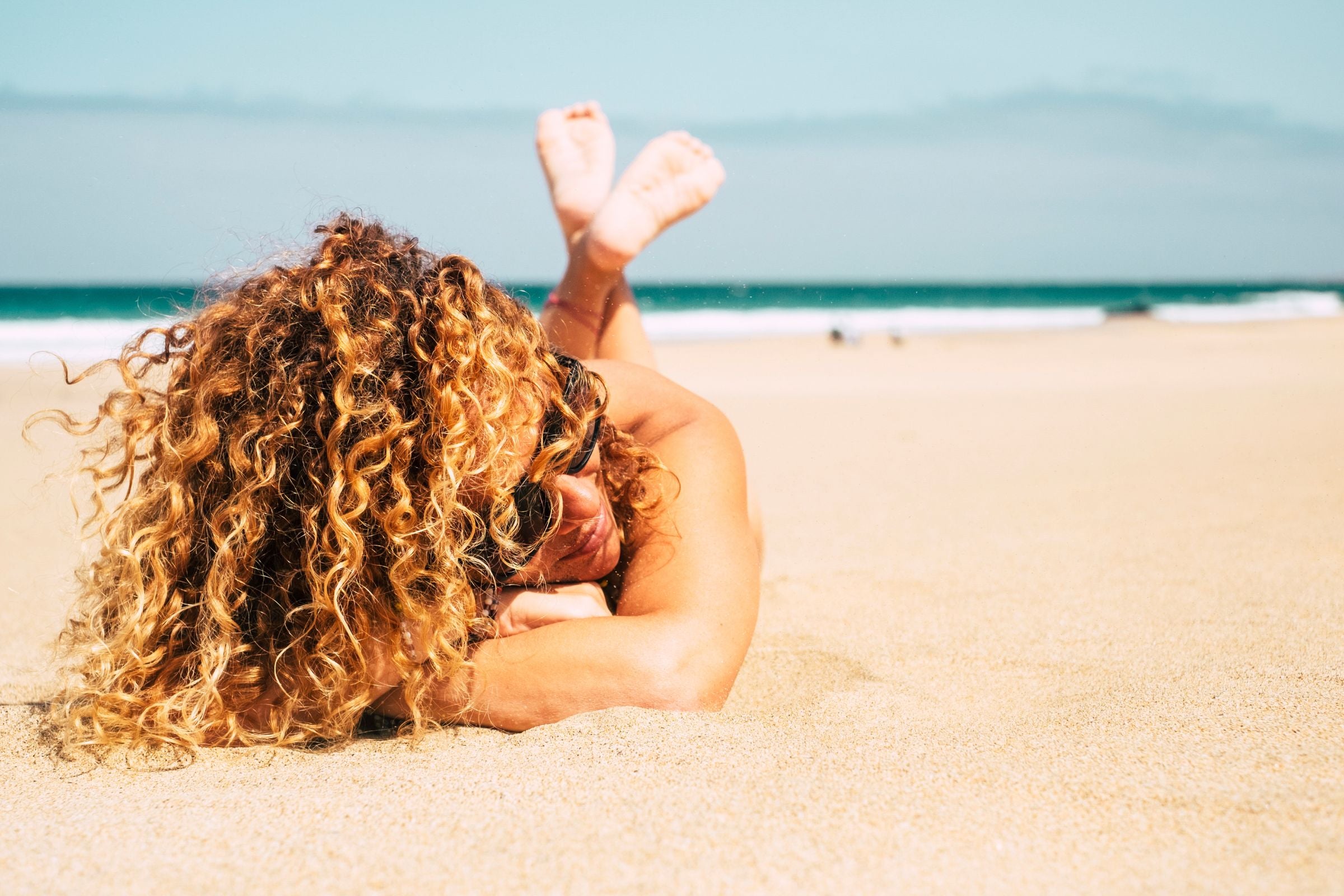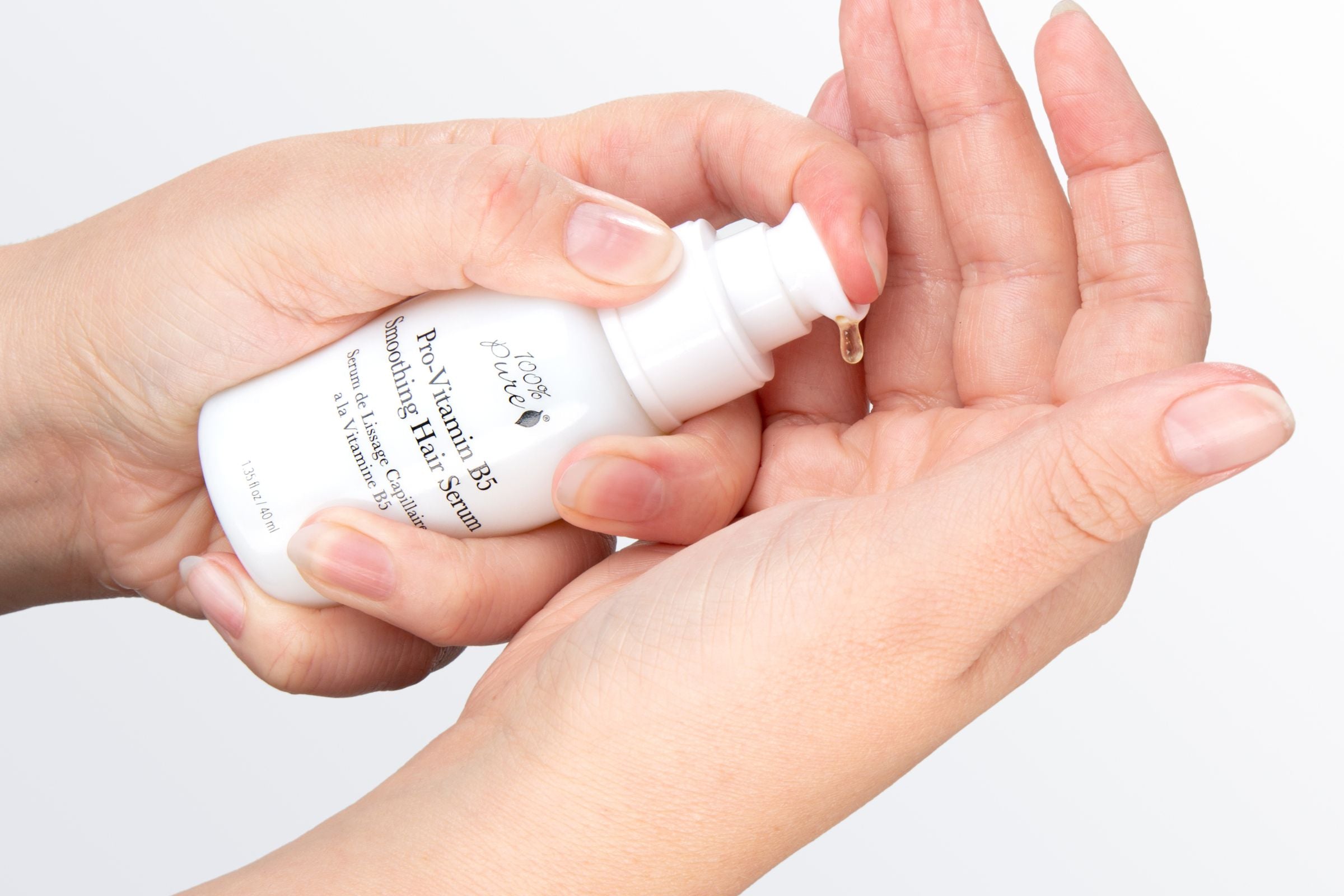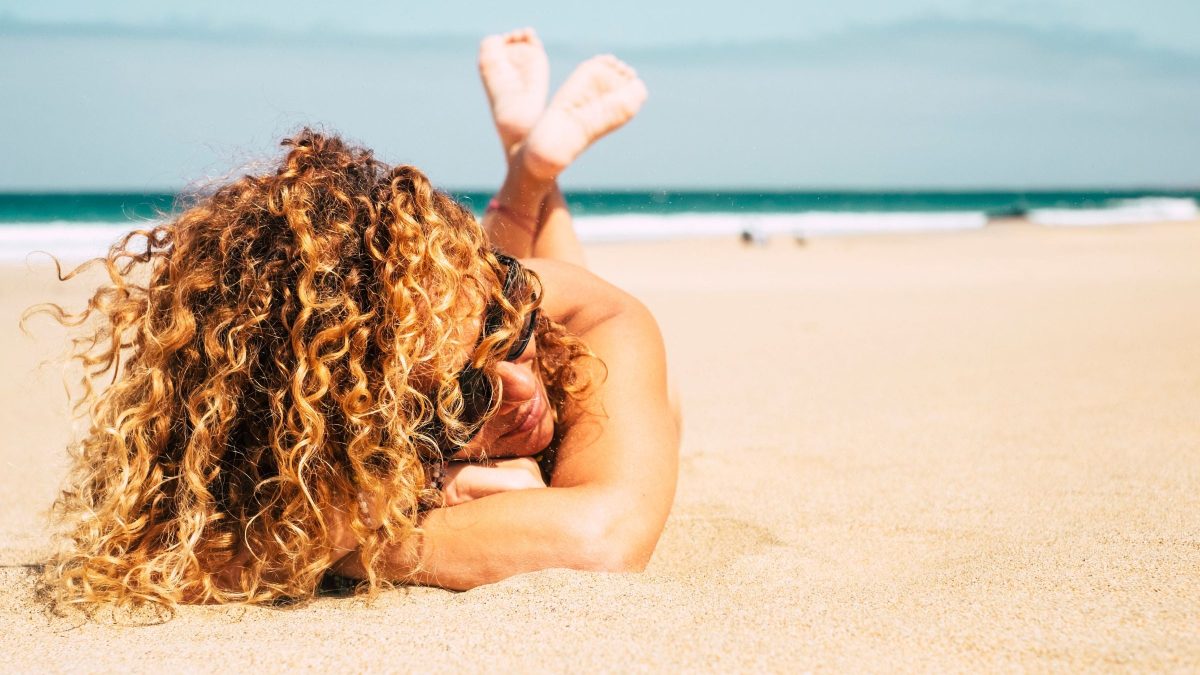Dive Into Healthy Locks: Unraveling the Truth About Saltwater and Your Hair
Posted on October 3, 2024 Written by: 100% PURE®

The Beach Hair Dilemma
Summer beach days are bliss—sunshine, ocean swims, and salty air. But post-beach hair? Not so much. The tangles, dryness, and damage can leave you frustrated after what should be a relaxing day.
Luckily, there’s a way to enjoy the sea without sacrificing your hair’s health. With a few simple tricks, like protective styling and hydrating treatments, you can keep your hair soft, shiny, and beach-ready all summer long.
So, dive in—healthy, beautiful hair and ocean fun can go hand in hand!
Understanding Saltwater’s Impact on Hair
When , salt crystals form and draw moisture from the hair, leaving it dry and dehydrated. These salt deposits can also roughen the hair cuticle, the outermost layer, causing it to lift and lose its smoothness. This results in hair that feels coarse, looks frizzy, and tangles easily. On a structural level, the salt’s dehydrating properties weaken the hair, making it more prone to breakage.
Repeated exposure to saltwater can lead to long-term damage, including split ends, dullness, and an overall brittle texture. The salt disrupts the, making it harder to maintain moisture and resilience over time. Without proper care, frequent beach trips can seriously compromise hair health.

Identifying Saltwater Damage
Saltwater damage to hair is primarily caused by the high salt content, which strips moisture and . Here are some key visual :
Dryness and Brittleness: Saltwater leaches moisture from the hair, making it feel dry and brittle.
Color Fading and Brassiness: Salt can affect hair color, particularly for dyed or chemically treated hair, causing it to fade or turn brassy.
Split Ends and Breakage: The loss of moisture weakens hair strands, leading to split ends and increased breakage.
Textural Changes: Saltwater can alter the hair’s texture, making it feel coarser or rougher than usual.
Roughness and Loss of Smoothness: Hair may lose its natural smoothness and feel rough to the touch after exposure to saltwater.
Increased Tangling and Difficulty in Styling: The roughened texture can lead to more tangling and make it harder to manage or style.
Proper care, such as using moisturizing products and rinsing hair with fresh water after exposure, can help prevent or reduce saltwater damage.
The Beach vs. Hair Health Dilemma
Enjoying the beach often comes with the concern of saltwater damage to your hair. While the ocean is fun, salt water can dry out and weaken your hair, leaving it brittle over time. However, you don’t have to choose between beach days and hair health.
By taking a few simple steps—rinsing with fresh water after swimming, applying protective products before heading out, and deep conditioning afterward—you can keep your hair strong and healthy. It’s all about balancing summer fun with some extra care, so you can enjoy the best of both worlds without sacrificing your hair’s well-being.
Navigating Beach Hair Care Myths
Navigating can be tricky, especially with so many myths floating around about achieving those effortless and maintaining natural texture. Let’s break down some common misconceptions and challenges:
Myth 1
You can only achieve “beach waves” by being at the beach.
Reality: Beach waves can be created without ocean water. Heat tools, braiding, and texturizing sprays can replicate the look. In fact, real beach water may not always enhance your waves—salt and sand can dry out your hair, making it frizzy and hard to manage.
Myth 2
All hair textures can easily transform into “beach waves.”
Reality: Different hair types react differently. Fine hair might get weighed down by product or water, while thicker or curlier hair could become tangled or more prone to breakage without proper care.
Myth 3
DIY saltwater sprays are harmless and mimic ocean water for the perfect beachy texture.
Reality: While saltwater can add texture, it also strips moisture from your hair. Regular use of saltwater sprays without proper hydration can lead to dryness, breakage, and frizz. Some DIY recipes might even include ingredients that are too harsh for frequent use, causing more harm than good.
Myth 4
Just rinsing hair after exposure to saltwater will fully protect it.
Reality: Saltwater residue can linger in the hair, causing it to dry out and weaken over time. A thorough wash with a gentle, hydrating shampoo is crucial after any saltwater exposure to properly restore moisture and balance.

Protection and Repair Strategies
To effectively protect and repair your hair from saltwater exposure, incorporating strategies at every stage of your beach routine is crucial. Here’s a guide to pre-swim, during-swim, and post-swim care, along with some great product recommendations.
1. Pre-Swim Protection
Create a Barrier with Leave-In Conditioners or Oils
Applying a leave-in conditioner or hair oil before swimming creates a barrier that locks in moisture and helps prevent saltwater from drying out your hair. The 100% PURE is a lightweight option that seals the hair cuticles, adding an extra layer of protection.
Wetting Hair with Fresh Water Before Swimming
Wetting your hair with fresh water before entering the ocean minimizes the amount of saltwater your hair absorbs, reducing the risk of salt damage. This step is particularly effective when combined with protective products.
2. During-Swim Care
Using Swim Caps or Protective Hairstyles
Swim caps are great for keeping saltwater out, especially if you swim regularly. For a stylish alternative, protective hairstyles like braids or buns reduce tangling and minimize exposure to saltwater.
Reapplying Protective Products
If you’re swimming for an extended period, reapplying leave-in conditioner or oil is important to maintain the protective barrier. Products like the are perfect for taming frizz and keeping hair nourished, even after hours of exposure.
3. Post-Swim Rituals
Immediate Freshwater Rinse
Rinsing hair with fresh water as soon as possible after swimming removes salt and sand residue. This prevents prolonged salt exposure that could dry out or damage your hair.
Deep Conditioning Treatments
Use a deep conditioner after washing your hair to restore moisture and hydration. The Honey & Virgin Coconut Restorative Conditioner from 100% PURE is a powerful, hydrating treatment that replenishes moisture lost to saltwater exposure, leaving your hair soft and healthy.
Specialized Saltwater Removal Shampoos
It’s important to use a shampoo designed to gently cleanse your hair without stripping it of natural oils. The 100% PURE Kelp & Mint Volumizing Shampoo is a mineral-rich option that removes salt buildup while adding volume to stressed hair. For a more clarifying wash, the Yuzu & Pomelo Glossing Shampoo effectively removes stubborn salt and infuses hair with nutrients.
Your Path to Healthy Beach Hair
You can enjoy the beach and keep your hair healthy with a few simple strategies. Start by rinsing your hair with fresh water after ocean swims, apply protective oils or sprays before hitting the sand, and follow up with a good deep conditioner after your beach day.
Prioritizing hair care during the beach season doesn’t have to be complicated. Take these small steps, and you’ll protect your hair from saltwater damage. Now’s the time to create your personalized beach hair care routine—your hair will thank you!
Frequently Asked Questions
How often can I swim in saltwater before it starts damaging my hair?
Occasional swims won’t cause major issues, but frequent exposure to saltwater can lead to dryness and brittleness over time. It’s important to rinse your hair with fresh water after each swim to minimize damage.
Can saltwater cause permanent damage to my hair?
Saltwater damage can be reversed with proper care, but long-term neglect may result in more permanent issues like split ends or extreme breakage.
Are there any benefits to saltwater for hair, or is it all negative?
Saltwater can give hair texture and volume, often creating that “beach waves” look. However, the downside is the drying effect, which outweighs the temporary benefits if not managed properly.
How can I achieve beach waves without exposing my hair to saltwater?
You can recreate beach waves using sea salt sprays or styling products designed to mimic the texture without drying out your hair. Curling wands or braiding damp hair overnight also works well.
Should I use different hair care products during the beach season?
Yes, during beach season, it’s helpful to use more moisturizing products, including leave-in conditioners, hair oils, and UV protectants to combat saltwater and sun exposure.




